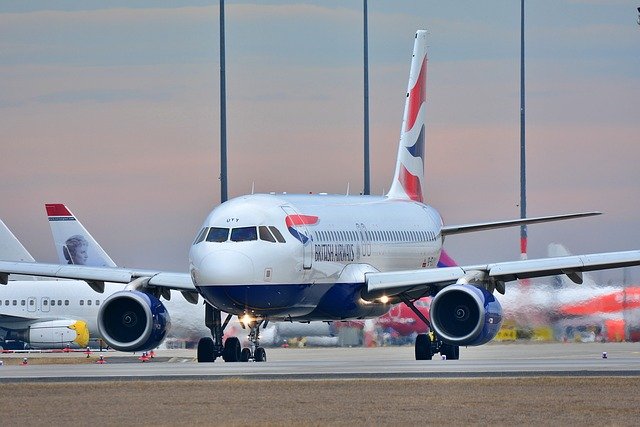How to Start Aviation Career with no Experience and What to Know
Aviation training in Canada is becoming more accessible — even for those without prior experience. From pilot prep to airport ground roles, training programs across Canadian cities are helping people explore structured career paths. This article explains how aviation courses are organized, what entry-level roles may include, and what to consider before starting your journey.

What types of airport jobs with training are available in Canada?
Canada’s airports offer a diverse range of jobs with training opportunities for newcomers to the aviation industry. Some common entry-level positions include:
-
Ground Handling Agents: Responsible for baggage handling, aircraft cleaning, and general ramp operations.
-
Customer Service Representatives: Assist passengers with check-in, boarding, and general inquiries.
-
Security Screeners: Ensure the safety of passengers and staff by conducting security checks.
-
Flight Attendants: While some experience is preferred, many airlines offer comprehensive training programs.
-
Air Traffic Control Assistants: Support air traffic controllers in maintaining safe and efficient air traffic flow.
These roles often come with on-the-job training, allowing individuals to gain valuable experience in the aviation sector.
Which airport-based roles in Canada offer on-the-job training?
Several airport-based roles in Canada provide on-the-job training for new applicants, making them ideal for those looking to start their aviation careers:
-
Passenger Service Agents: Airlines often train new hires in ticketing, check-in procedures, and customer service.
-
Ramp Agents: Learn aircraft marshalling, baggage loading, and de-icing procedures through hands-on training.
-
Cargo Handlers: Receive training in freight handling, documentation, and safety procedures.
-
Airport Operations Officers: Gain experience in day-to-day airport management and emergency response.
-
Aircraft Fuelers: Learn proper fueling techniques and safety protocols directly on the job.
These positions typically require a high school diploma and a willingness to learn, making them accessible to those with no prior aviation experience.
What kinds of aviation-related jobs are open right now in cities across Canada?
The aviation industry in Canada is currently experiencing growth, with various job openings across different cities:
-
Toronto: Flight Dispatcher trainees, Airline Customer Service Representatives, and Aircraft Maintenance Engineers.
-
Vancouver: Ground Handling Agents, Aviation Security Officers, and Air Traffic Controller trainees.
-
Montreal: Bilingual Flight Attendants, Airport Operations Staff, and Avionics Technicians.
-
Calgary: Ramp Agents, Aircraft Refuelers, and Aviation Weather Observers.
-
Halifax: Airport Information Officers, Air Cargo Handlers, and Aircraft Grooming staff.
These positions often come with competitive benefits and the opportunity for career advancement within the aviation sector.
Which training courses are available through Canadian institutions for aviation careers?
Canadian institutions offer a wide range of aviation-focused training courses to help individuals start their careers:
-
Commercial Pilot Training: Available at flight schools across the country, including Seneca College in Toronto and Mount Royal University in Calgary.
-
Aircraft Maintenance Engineer programs: Offered by institutions like British Columbia Institute of Technology and Centennial College in Toronto.
-
Aviation Management courses: Available at schools such as Georgian College and Fanshawe College.
-
Air Traffic Controller programs: Provided by NAV CANADA in partnership with various colleges.
-
Airport Operations diplomas: Offered by institutions like Southern Alberta Institute of Technology and Confederation College.
These programs combine classroom learning with practical experience to prepare students for various aviation careers.
What unique facts should you know about aviation training in Canada?
Canada’s aviation industry has some unique aspects that set it apart:
-
Northern Operations: Many pilots start their careers flying in remote northern communities, gaining valuable experience in challenging conditions.
-
Bilingual Advantage: Fluency in both English and French can significantly enhance career prospects, especially for flight attendants and customer service roles.
-
Winter Operations Training: Canadian aviation programs often include specialized training for winter operations, a valuable skill in the global aviation market.
-
Indigenous Aviation Programs: Several initiatives aim to increase Indigenous participation in aviation, offering specialized training and support.
-
Transport Canada Regulations: All aviation training in Canada must adhere to strict Transport Canada regulations, ensuring high standards across the industry.
What are the costs of aviation training in different parts of Canada?
The cost of aviation training in Canada can vary significantly depending on the program and location. Here’s a comparison of some common training programs:
| Program | Institution | Location | Estimated Cost (CAD) |
|---|---|---|---|
| Commercial Pilot License | Seneca College | Toronto, ON | $80,000 - $100,000 |
| Aircraft Maintenance Engineer | BCIT | Vancouver, BC | $40,000 - $50,000 |
| Aviation Management Diploma | Georgian College | Barrie, ON | $15,000 - $20,000 |
| Flight Attendant Certificate | Canadian Tourism College | Vancouver, BC | $7,000 - $10,000 |
| Air Traffic Controller Program | NAV CANADA | Various | Paid training (salary provided) |
Prices, rates, or cost estimates mentioned in this article are based on the latest available information but may change over time. Independent research is advised before making financial decisions.
Starting an aviation career in Canada without prior experience is possible through various entry-level positions and training programs. From on-the-job training at airports to specialized courses at educational institutions, there are multiple pathways to enter this exciting industry. By understanding the types of jobs available, required training, and associated costs, aspiring aviation professionals can make informed decisions about their career paths in this dynamic field.




